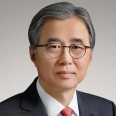More than 30 years have passed since suspicions about North Korea’s nuclear development surfaced in the early 1990s, yet there has been no progress toward the “complete denuclearization of North Korea.” While it is essential to strengthen “extended deterrence” measures, including the redeployment of U.S. tactical nuclear weapons in response to North Korea’s nuclear threat, it is also critical to establish a mechanism to resolve the issue through multilateral dialogue. As of now, there is no point in reviving the Six-Party Talks involving South Korea, the United States, Japan, China, Russia and North Korea. The talks have not been held for 17 years, and North Korea argues that if the Six-Party Talks are resumed in the future, they should take the form of “nuclear disarmament talks.”
At the April 2025 Asan Planum, hosted by the Asan Institute for Policy Studies on the theme of “80 Years of Independence and 60 Years of Korea-Japan Normalization,” one participant proposed a new framework of a Five-Party Talks, excluding Russia from the existing Six-Party Talks. As Russia has formed an alliance with nuclear-armed North Korea, it is naturally not qualified to participate. If ROK-U.S.-Japan security cooperation and China’s influence over North Korea are combined, it can foster a new diplomatic atmosphere.
However, it remains uncertain whether a Five-Party Talks can actually be realized. North Korea is likely to reject a multilateral format that places it in a 3-to-2 numerical disadvantage. China would also reject talks that could diminish its influence. Moreover, the Trump administration, which is seeking to create a conciliatory atmosphere with Russia, may also view the Five-Party Talks unfavorably.
If the Five-Party Talks are unrealistic, alternative forms of multilateral talks should be explored. One example is what is commonly referred to as the “U.S.-Iran nuclear deal.” That negotiation involved the five permanent members of the UN Security Council, including the United States, the United Kingdom, France, China, and Russia, along with key stakeholders such as the European Union and Iran. The participation of all P5 members adds talks more weight. Therefore, similar to the Iran nuclear deal, an Eight-Party Talks could be envisioned, in which the P5 members, South Korea and Japan, which are potential targets of North Korea’s nuclear weapons, and North Korea. However, if Japan participates, backlash from Russia and China, who are outnumbered, can be expected.
Therefore, participating countries will be more likely to accept the Seven-Party Talks, which comprise the P5, South Korea, and North Korea. This is because it would be difficult even for China and Russia to deny South Korea’s status as a key stakeholder. China and Russia would have little justification to object to the composition of the talks since all permanent members of the Security Council would be represented. If North Korea violates or refuses to implement any agreements reached through the Seven-Party Talks, UN sanctions can be accordingly pursued.
Moreover, this new multilateral format is meaningful as it would secure a channel for South Korea to assert its voice on North Korea’s denuclearization. To guide North Korea toward denuclearization, South Korea should project an image to the international community of being committed to resolving the issue peacefully through dialogue. Simultaneously, pressure on North Korea must be intensified in a way that highlights to the international community the Kim Jong Un regime’s abnormal obsession with nuclear weapons. We must ensure that Kim Jong Un realizes that his fixation on nuclear weapons could ultimately endanger the survival of his regime and system.
* The view expressed herein was published on May 7 in The Chosun Ilbo and does not necessarily reflect the views of The Asan Institute for Policy Studies.

 Facebook
Facebook Twitter
Twitter